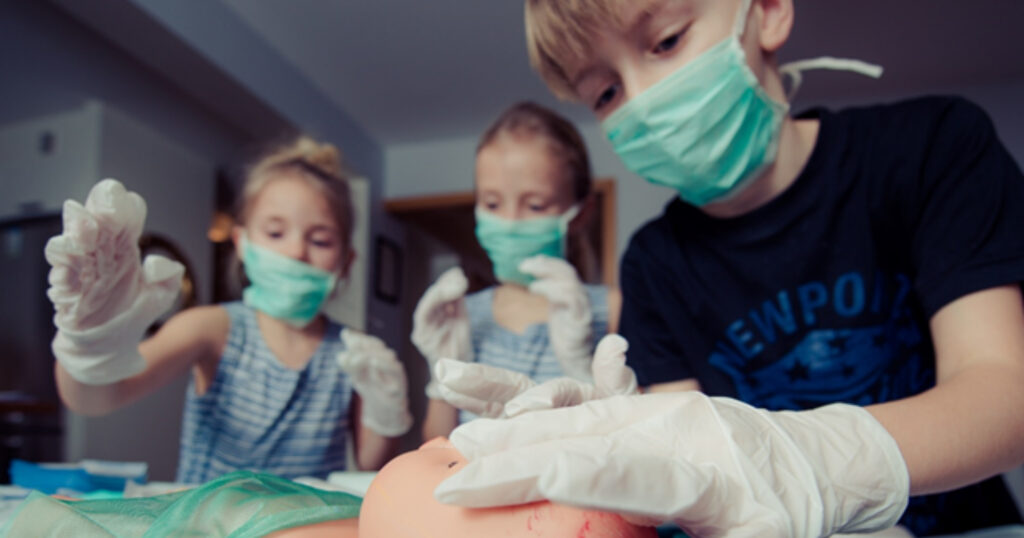
By Paige Howard, MS, AMFT, APCC and Sushi Frausto, LMFT
When in Doubt, Let Them Play It Out!
Play is a safe and familiar way kids communicate what they’re thinking and how they’re feeling. While we as adults can say “I’m feeling scared, sad or disappointed,” kids express those feelings through what is most natural for them—play. Play helps children better understand their world as it unfolds around them. When children play, not only do they feel better in their bodies, they also build tools for how to handle the big feelings that could otherwise overwhelm them.
During play, kids receive eye contact, partake in laughter, get safe touch and connect with others – releasing stress-relieving chemicals such as endorphins, oxytocin, dopamine and nitric oxide. Stress-relieving chemicals keep our nervous systems calm, so we can learn in a state of openness and receptivity.
How Medical Play Helps Kids to Cope during COVID-19
During the COVID-19 crisis, your children might gravitate towards pretend medical play such as playing doctor, using toys as medical tools, checking temperatures of their dolls, or putting Band-Aids on you. These pretend scenarios allow them to “play out” some of their worries and fears surrounding the virus. This is great! By engaging in this sort of play, kids are learning how to better cope with what feels out of control.
Let’s Play!
When playing with your children, follow these tips to help them get the most out of it – and to connect with them in ways that feel good to them!
- Reflect what you see. When your children are playing, try verbalizing what you’re noticing objectively (“You moved the block over there,” or “You used the thermometer to check bear’s temperature”). This helps narrate the story and lets your children know that you’re with them in their play.
- Try not to ask questions. While it can be so tempting to ask kids what they’re doing, it is important to keep them focused in their play. Focus on verbalizing what you’re seeing rather than asking questions.
- Use connecting nonverbal communication. Maintain eye contact, lean in with your body, and keep your tone of voice kind and soothing with your children. They will feel so safe knowing that you’re genuinely there with them with your whole self!
Get Ready for Repetition
Kids love and need repetition. They may reenact the same scene or portray medical play repeatedly. Each time they gain a better and deeper understanding. If you notice they are doing the same scene continuously this may indicate there is something about that scenario they are trying to process.
Even after things return to “normal” you may see medical play. You child may be trying to process all that has happened. Follow these tips to support your kids in this important processing strategy.
Ready to play?!
Check out our printable, super helpful guide for parents:
How Medical Play With Your Kids Can Help Them Process COVID-19!
It offers a step-by-step guide to preparing for play, getting creative with roles and “medical supplies,” supporting your kids correctly during playtime, helping them process concerns that arise and more!


